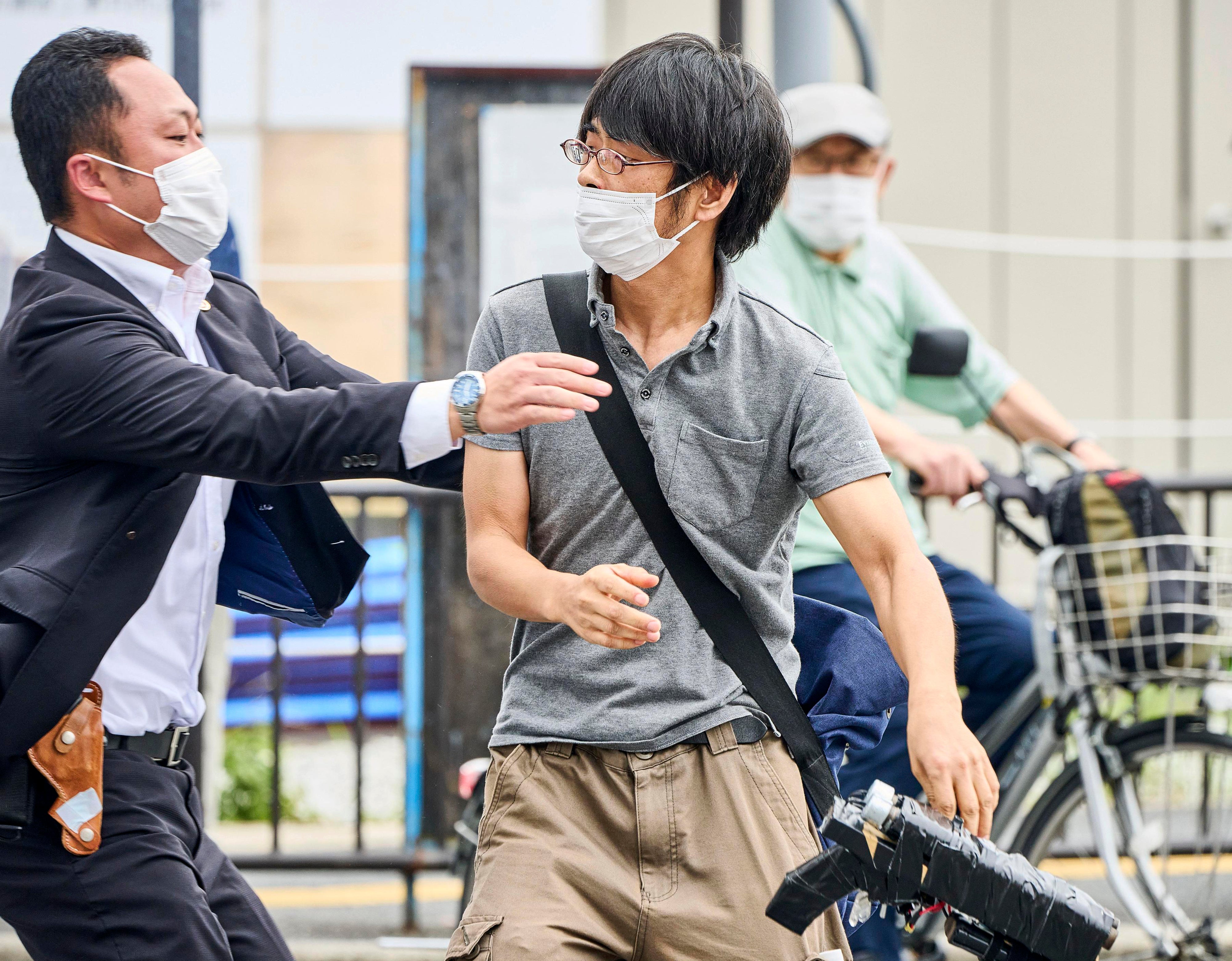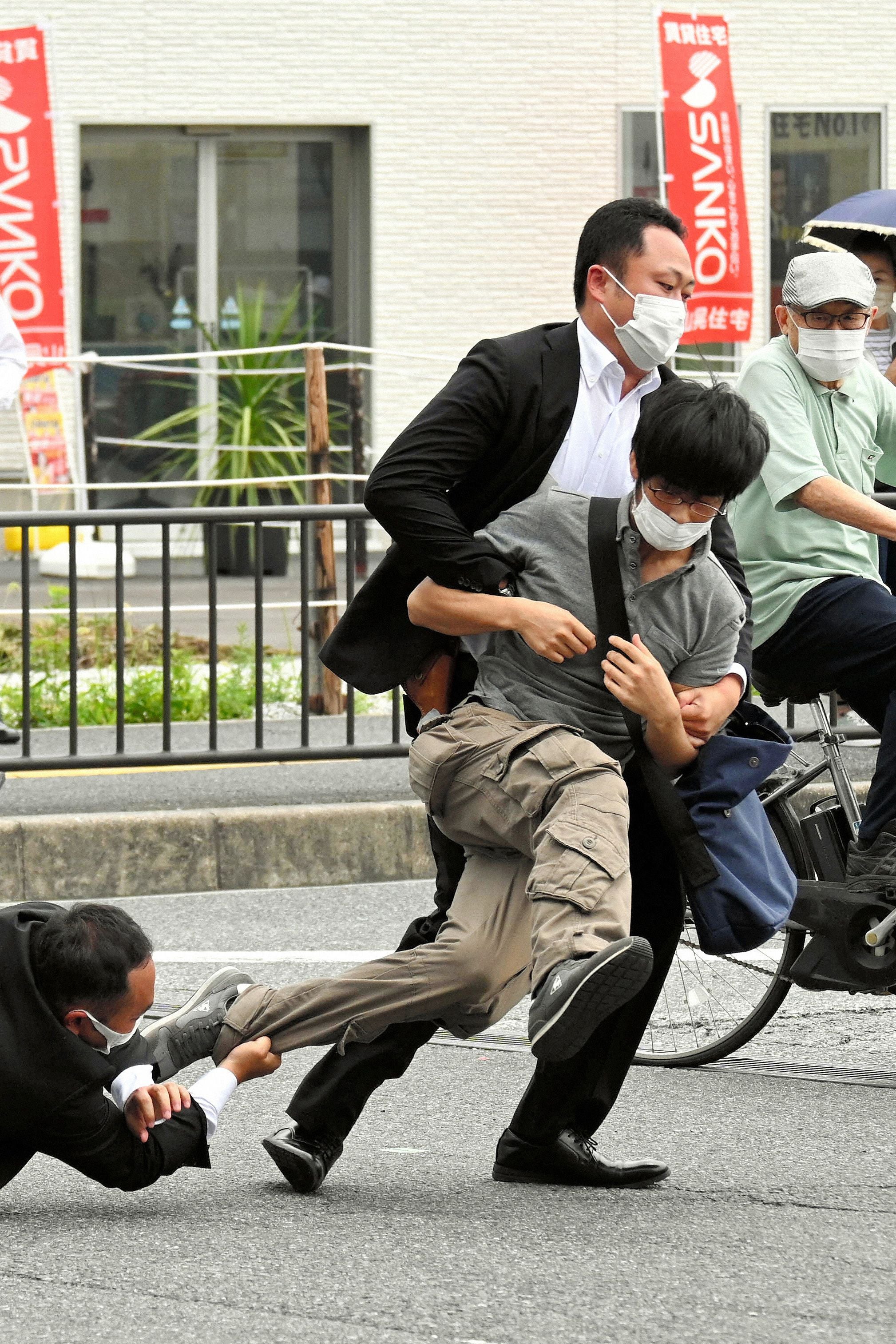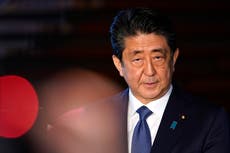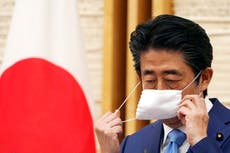Shinzo Abe death: Shock at assassination in Japan that has some of world’s strictest gun laws
The death comes in a country with the lowest number of gun-related deaths
Disbelief has gripped Japan as the country, which has some of the strongest gun laws and the lowest rates of gun-related crimes in the world, comes to terms with the death of former prime minister Shinzo Abe.
Mr Abe, 67, was shot twice during his speech at the Nara Prefecture on Friday morning and was airlifted for emergency treatment, but died of his injuries at a hospital in the city
Doctors said he died at 5.03pm – about five and a half hours after he was shot. They said the bullet penetrated his heart and that he had no vital signs when he was brought in.
The 41-year-old gunman, identified as Tetsuya Yamagami from Nara by local media, was soon taken into custody by the security officials. He reportedly told police he was unhappy with the former, conservative-leaning prime minister.
The shock at Mr Abe’s assassination has been compounded by the fact that Japan has some of the strongest’s gun laws and gun violence in the country is extremely rare.
Compared to the US – which reported 39,740 deaths from firearms in 2018 – Japan reported only nine deaths from firearms in the same year, according to the Sydney School of Public Health data.
In 2019, the number dipped further down to three.
The annual rate of all gun deaths per 100,000 population in Japan was 0.01 in 2018 and 0.02 from 2014-17, according to the latest data from GunPolicy.org, which sources information about armed violence, firearm law and gun control.

Only an estimated 0.25 guns are carried by civilians per 100 people in Japan, as per the Small Arms Survey, a project of the Graduate Institute of International and Development Studies in Geneva.
This is in stark contrast to the 120 guns carried per 100 people in the US.
Japan had made its gun laws more stringent after the 2007 shooting of Nagasaki mayor Iccho Ito by a gangster.
It imposed heavier sentences for gun offences by organised crime syndicates.
Under revised gun laws, possessing a gun as part of an organised crime syndicate can lead to up to 15 years in prison while discharging a gun at a public place can lead to a life sentence.

In the US, the second amendment allows wide-ranging laws for people to buy and keep guns and has been blamed by activists for a string of mass shootings, including the recent 4 July shooting at a parade at a suburb in Illinois that killed six people and the deadly shooting inside a school in Texas in May that killed 19 children.
Both shootings were carried out by assault rifles that are easily procurable in certain US states, while the gun used to assassinate Mr Abe was reportedly “homemade”.
Officials described the suspect holding a “cylinder-shaped object”, which released a “white smoke” from its tip, according to state broadcaster NHK.
Join our commenting forum
Join thought-provoking conversations, follow other Independent readers and see their replies
Comments



Bookmark popover
Removed from bookmarks